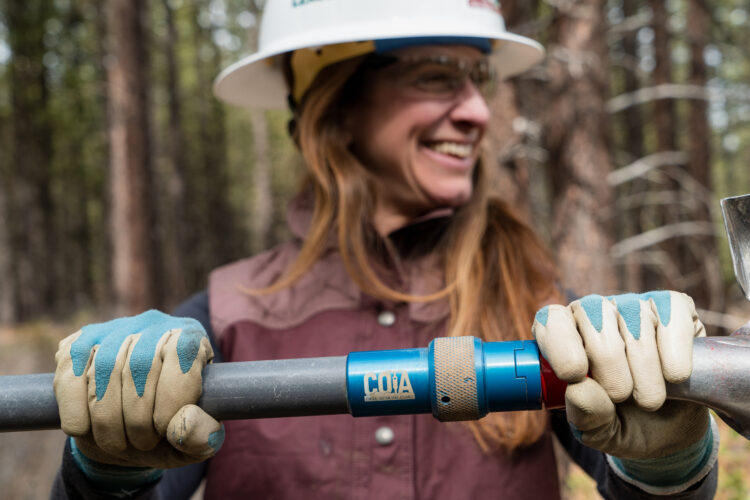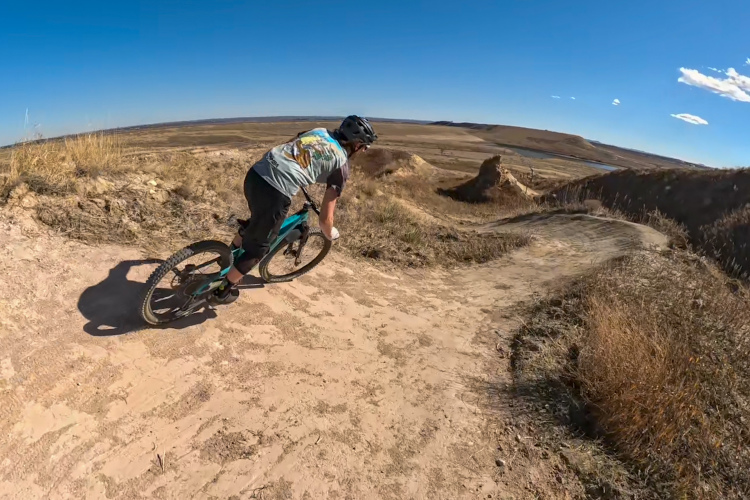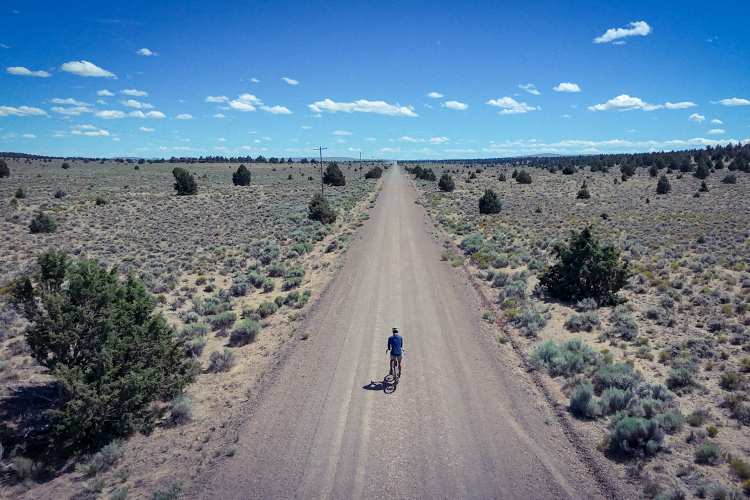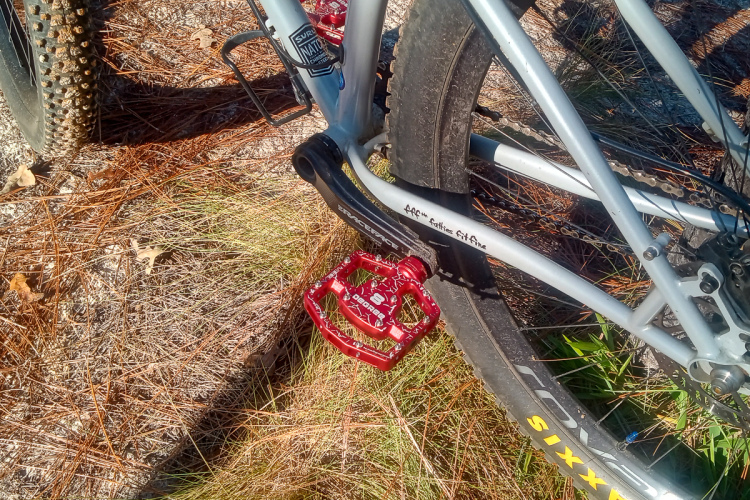
Bend, Oregon, has long been a popular destination for those seeking the outdoors—especially mountain biking. Hundreds of miles of singletrack lie just west of the city in the Deschutes National Forest, and lift-access Mt. Bachelor Bike Park is less than a thirty-minute drive away.
A new US Forest Service (USFS) trail proposal could see Bend join the ranks of places like Jackson, Wyoming, and Tahoe, California, granting class 1 e-bikes access to some non-motorized trails on USFS land. However, unlike places such as Tahoe, where e-bike proposals have already passed, Bend has just entered the 30-day public commenting period, with the proposal’s announcement at the beginning of July.
Also, unlike other similar stories we’ve covered, it wasn’t the area’s trail organization or any e-bike club that proposed bringing eMTBs onto Bend’s trails. Instead, Bend’s class 1 e-bike proposal comes from the Forest Service itself.
Class 1 pedal-assist proposal
While the Deschutes National Forest officially brought the proposal to the table, they quickly pointed out that it was a collaborative effort.
“The Deschutes National Forest and multiple other organizations participated in community round-table discussions facilitated by the Deschutes Trails Coalition in 2023,” Justin Ewer, Recreation Planner for the Deschutes National Forest, told us.
Ewer explained that interest has been growing in the Bend community in accessing singletrack trails via eMTB. In response to this growing user group and the community discussions, the USFS officially pushed the proposal forward.
If the proposal passes, trails will move away from their “non-motorized” designation, being reclassified as “motorized” trails. However, this wouldn’t mean anything with a motor is allowed on the trails. Ewer explained that the USFS had created a new use classification for e-bikes, classifying trails as “motorized” but only having motorized access applicable to class 1 e-bikes.
Essentially, the trail doesn’t change except for the allowance of class 1 pedal-assist e-bikes.
“The Forest Service brought this proposal forward to be responsive to changing technology in outdoor recreation within the existing trail system and infrastructure,” Ewer said. “Community input has been valuable as we consider trails where e-bikes may or may not be appropriate.”
While this proposal won’t open all trails to e-bikes, if it passes, roughly 160 miles of trail will allow class 1 e-bikes. This 160 miles includes some trails in the Phil’s trail system, Wanoga, and Sunriver area trails, and Peterson Ridge outside of the town of Sisters, just north of Bend. All 160 miles of trail in the proposal are current trails, with no new trails being built.
As far as the inclusion of some trails, while others were left out of the proposal, Ewer pointed us to page 9 of the USFS environmental assessment. Some reasons included were:
- Provide a range of riding opportunities for riders of all skill levels. Provide a range of riding experiences
- Utilize existing trails that are well-built and regularly maintained
- Utilize natural and easily understood geographic boundaries that make it clear which trails are authorized for e-bike use and which trails are not authorized
- Avoid areas where federally listed species or their habitat are present, to the degree feasible
Based on these for trail selection, the 160 miles of trail considered fall relatively close to the city of Bend. Looking at the trail map provided by the USFS, trails getting closer to the Cascade Range further west of Bend are separate from the e-bike proposal.
Ewer also pointed out that “the existing trail system is already broken out to specific uses; for example, hiker only, equestrian, OHV, cross country skiing, etc.” The addition of class 1 eMTBs would need to work well within the forest’s existing system.
Regarding e-bikes staying on their designated trails, Ewer stated that most trail users already respect trail laws and etiquette, and the USFS expects this to continue. He did mention, however, that the USFS Law Enforcement plays a role in prioritizing public safety and resource protection.
Perspective from the Central Oregon Trail Alliance
Emmy Andrews, the Executive Director of Central Oregon Trail Alliance (COTA), also anticipates eMTB riders policing themselves. “The vast majority of trail users respect posted rules,” Andrews told us. “Signage will be the primary method of communicating any changes, and we expect people using class 1 pedal-assist e-bikes to be similarly respectful of posted limitations and use good trail etiquette.”
COTA oversees, builds, and maintains the hundreds of miles of trails in and around Bend. As an organization, COTA supports the Forest Service’s e-bike proposal and will have some work to do if the proposal passes. One of the major tasks COTA will take on will be updating signage.
Aside from updating signage for the trail systems, COTA will also be tasked with the upkeep of the trails. With the addition of an e-bike user group, we wondered if COTA anticipated an exponential increase in required trail maintenance.
“Based on the available data and talking to other trail organizations where class 1 pedal-assist e-bikes are allowed, we don’t anticipate a large jump in maintenance due to e-bikes specifically,” Andrews told us. In fact, Andrews told us that they are seeing an increase in the need for trail maintenance because of increased user numbers, regardless of e-bikes. “The amount of trail work COTA has to do each year has been growing over the years for a wonderful reason: because more people are falling in love with mountain biking!”
Both Ewer and Andrews said that it is tough to know the size of the eMTB user group. There isn’t yet enough data to support specific numbers, plus e-bike and acoustic mountain bike users tend to blend. Both Andrews and Ewer spoke with other trail organizations that have changed their trails to allow e-bikes. These trail systems didn’t see a rapid increase in numbers that would suggest an entirely new user group; rather, they saw continued steady growth.
It is still too early to tell whether the proposal will pass, as it is still in the early days of public comment. Regarding how trail users of Bend feel about the proposal, Andrews thought it was also too early to reach any conclusions. “My own opinion changed when I rode a class 1 pedal-assist e-bike for the first time and realized it’s just me on an e-bike,” Andrews said.
“I have great empathy for people who are concerned about allowing e-bikes. They love mountain biking, and they’re worried that this change will lead to more user conflicts and degrade their experience,” she continued. “I’ve also had my heart touched by so many stories of people of all ages with health challenges who want to enjoy the trails with their friends and families. As is often the case, we’re more alike than we are different. We all love mountain biking, and it is up to each of us to be unfailingly kind and respectful of each other so that we can all have a blast out there.”
If the proposal passes, eMTBs aren’t expected on the trails until spring 2025.










0 Comments